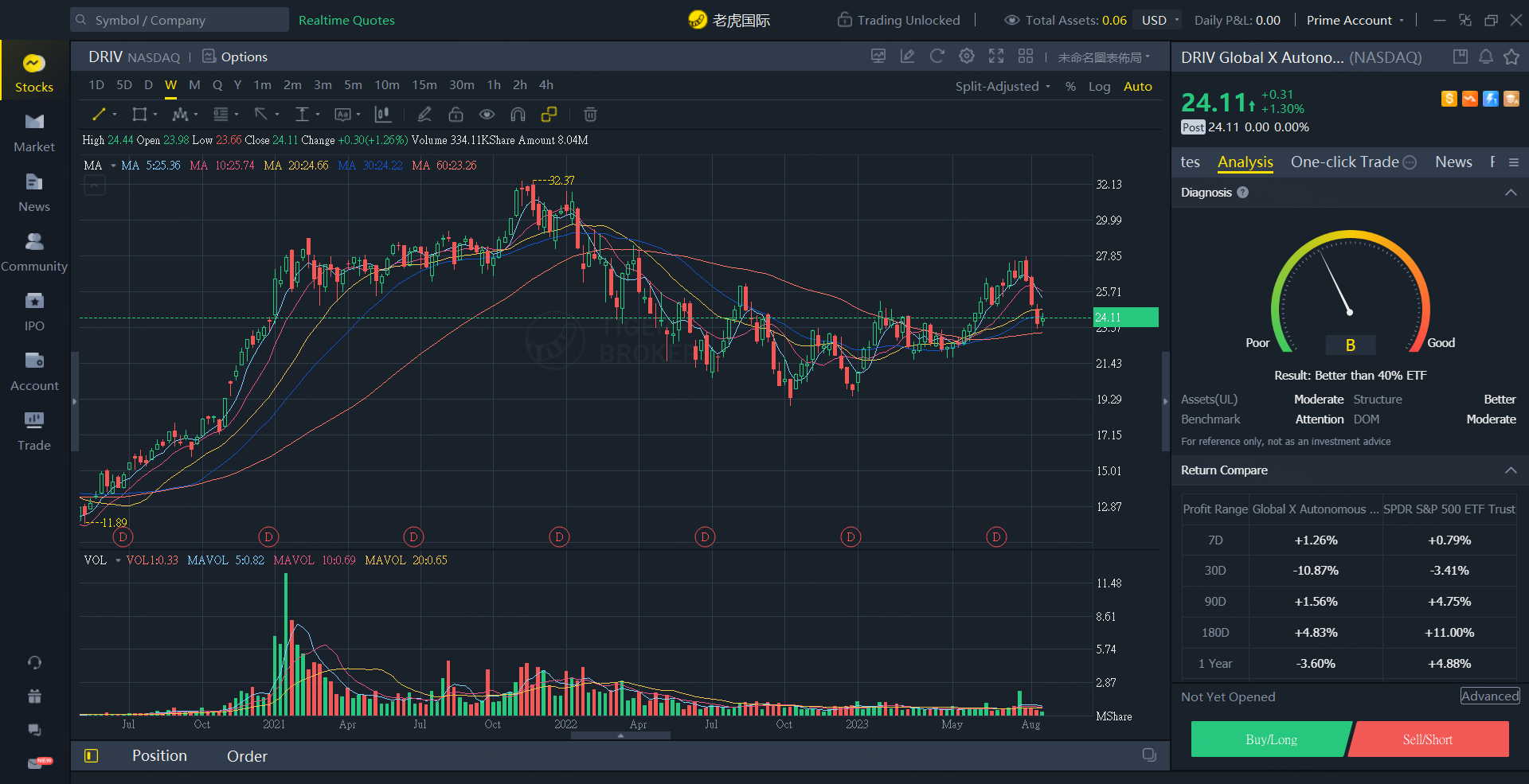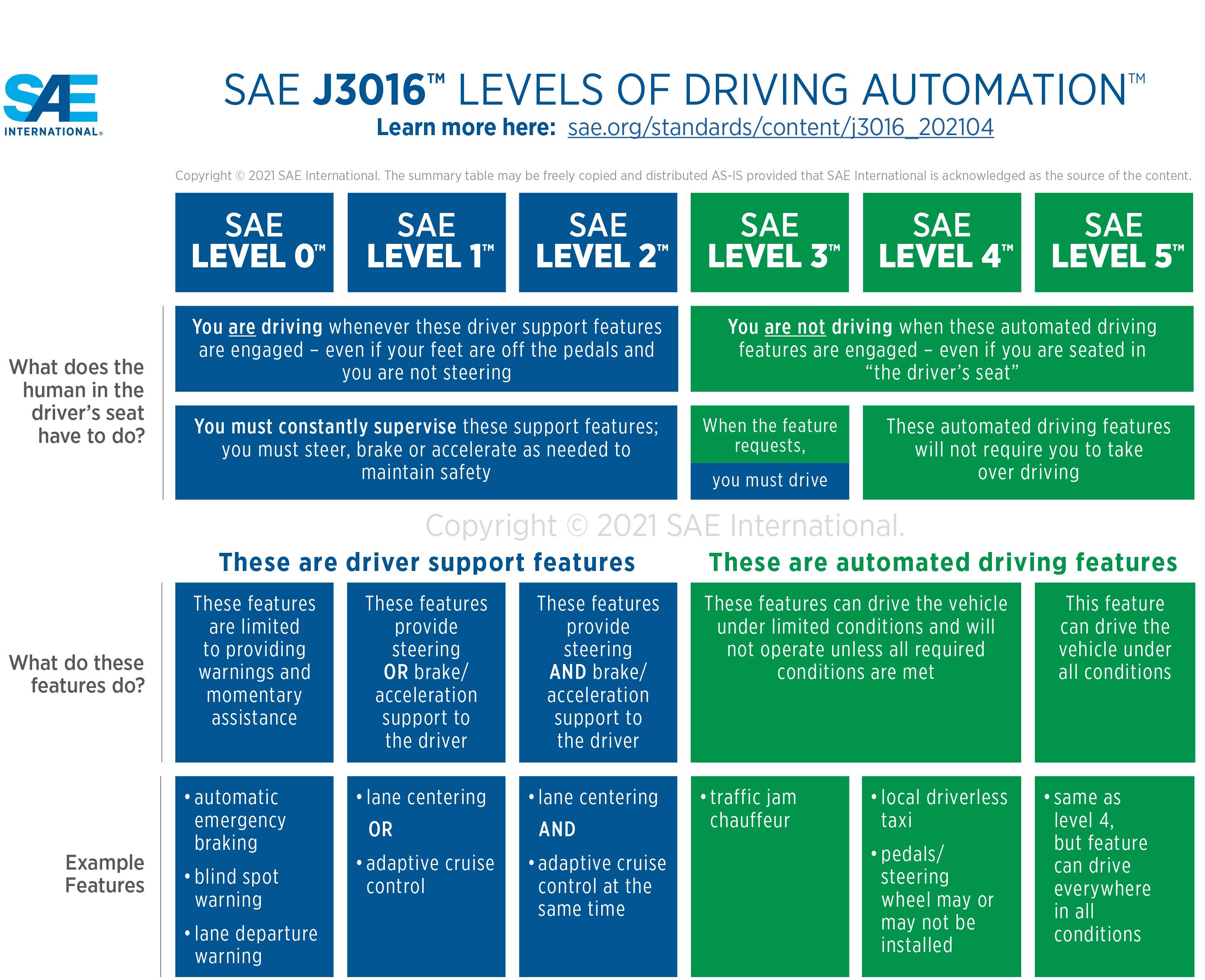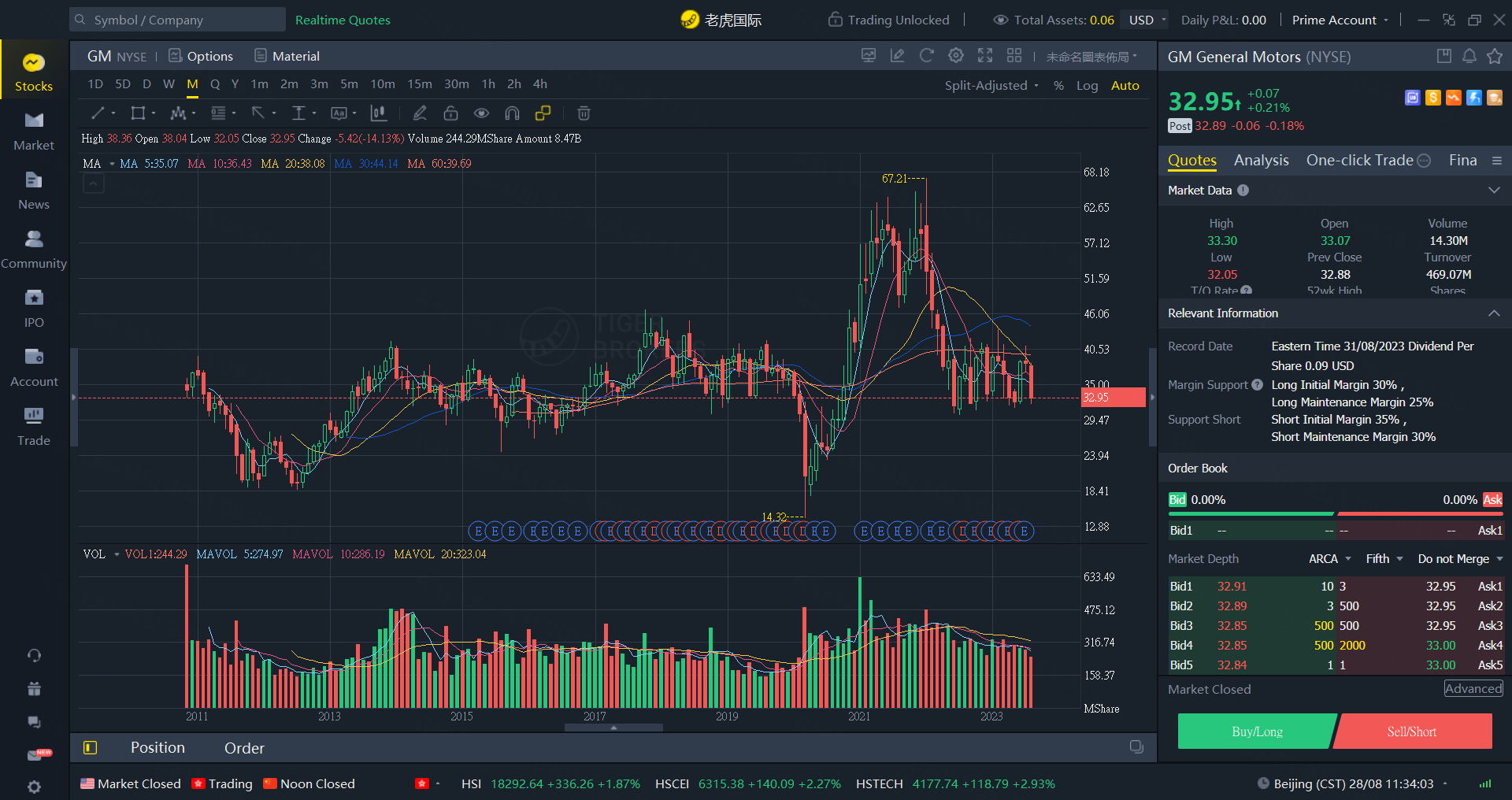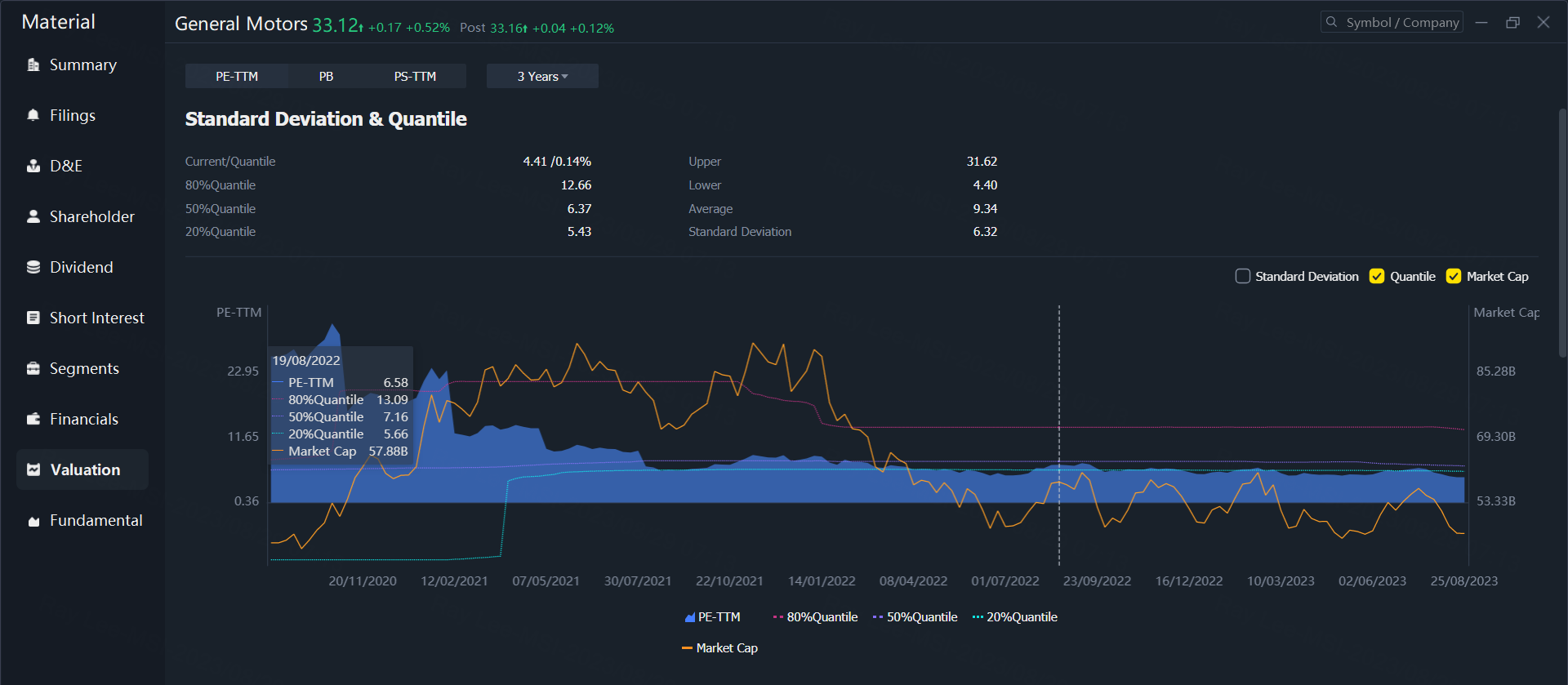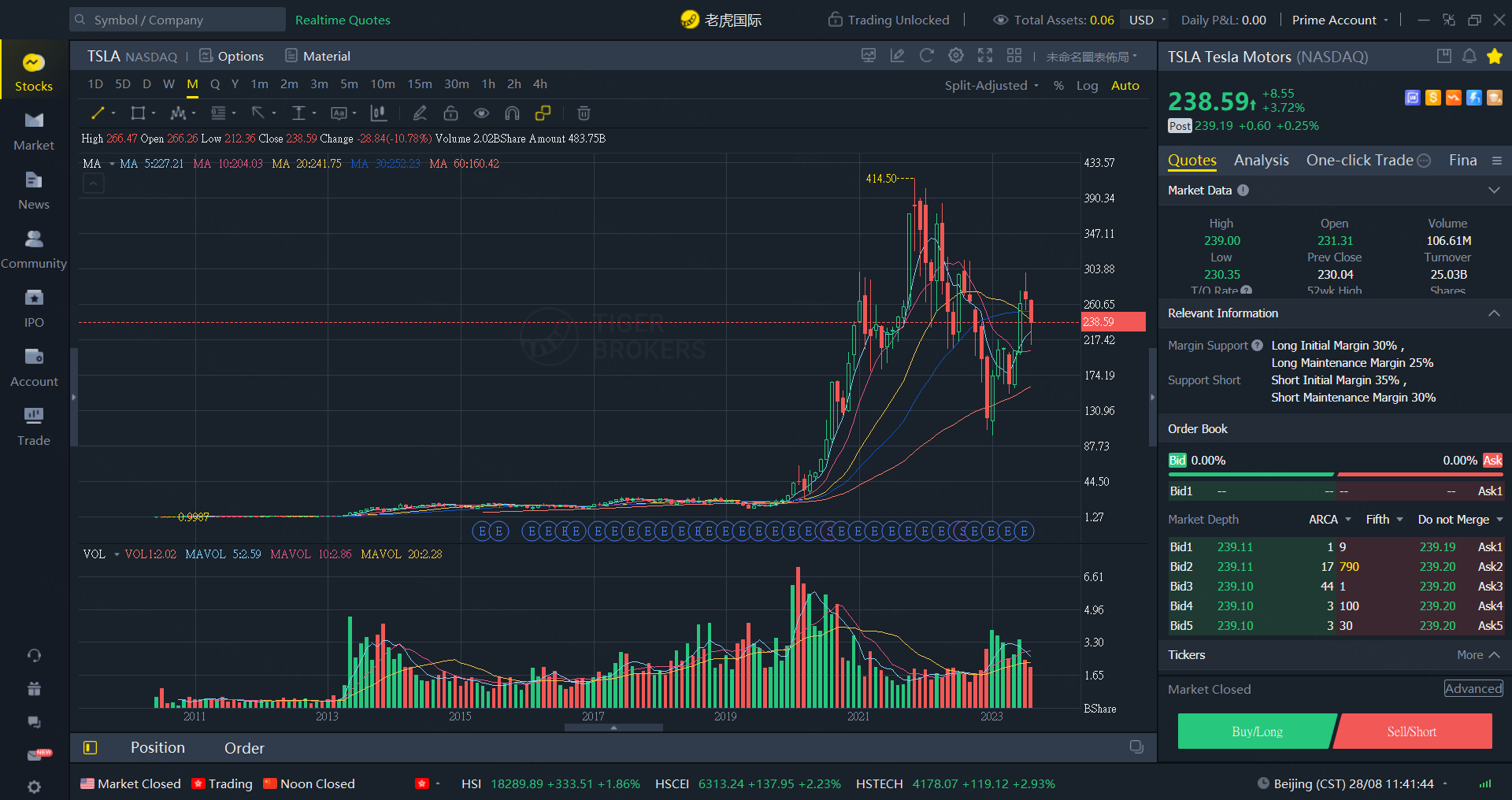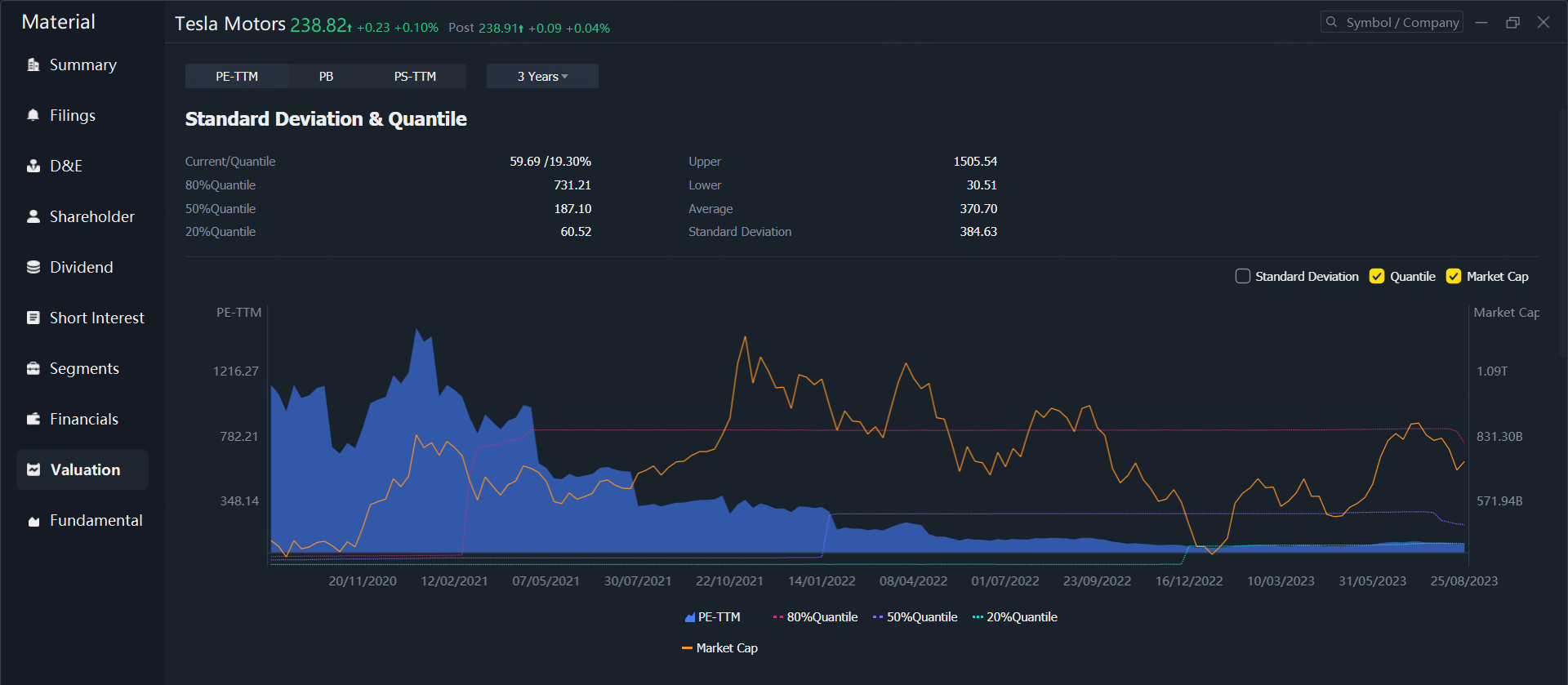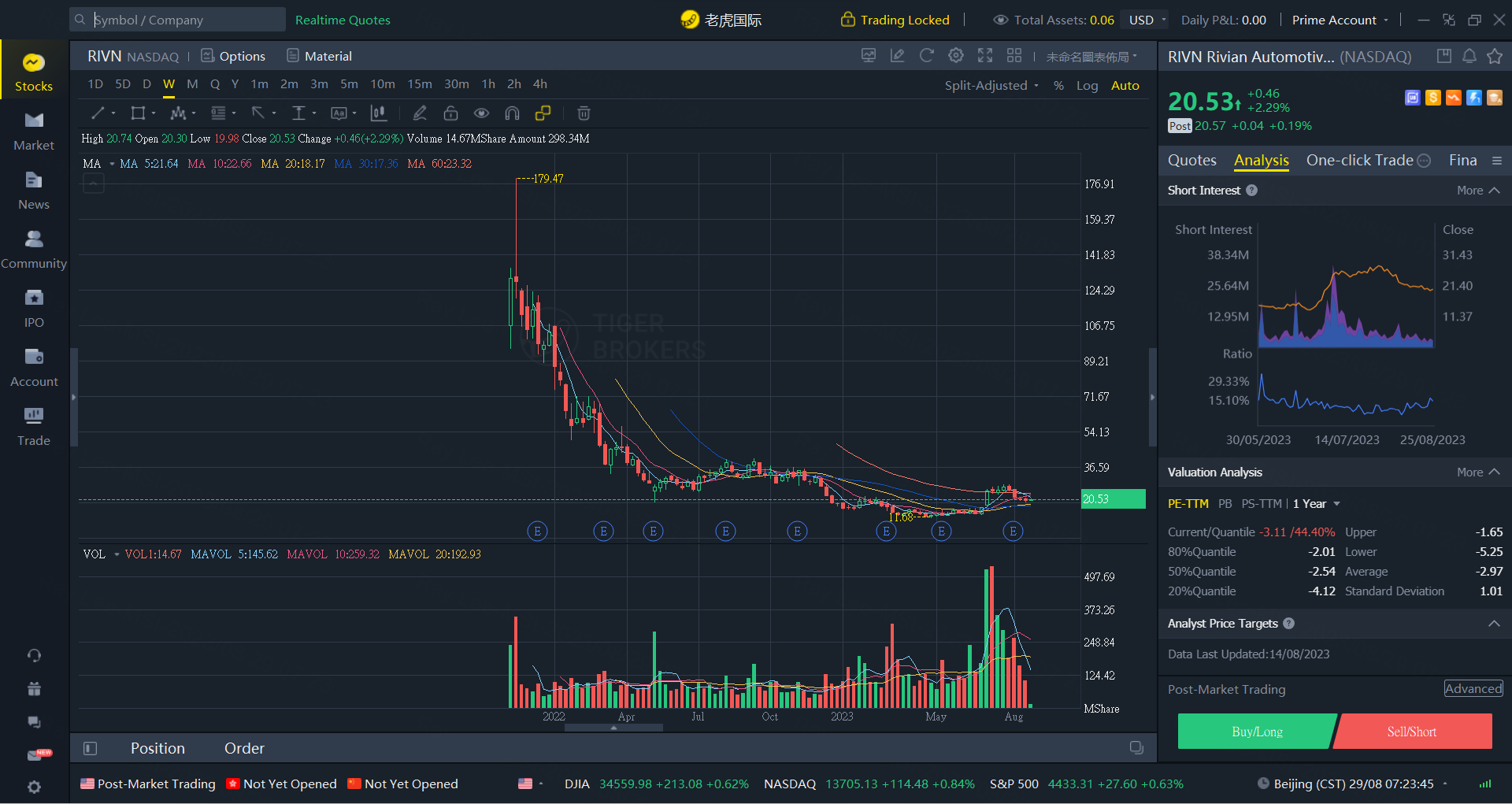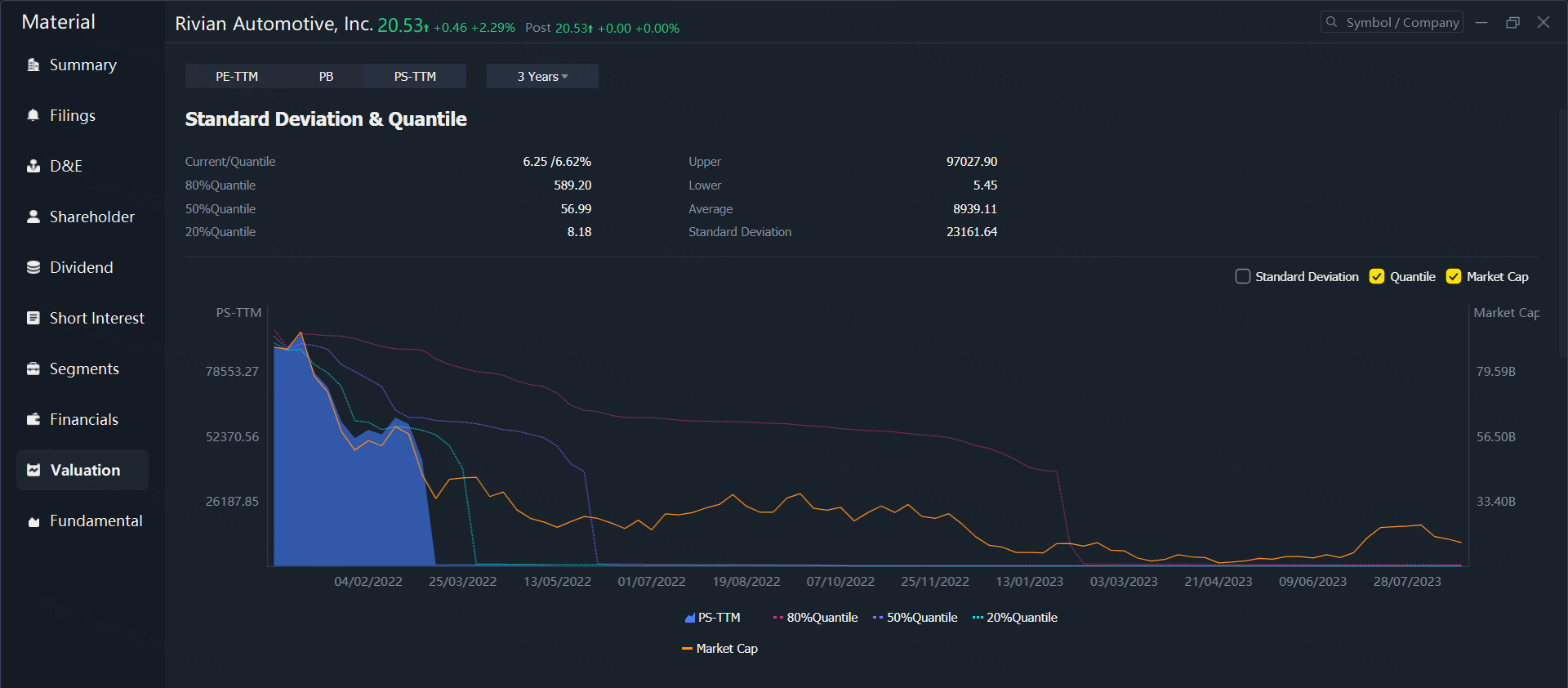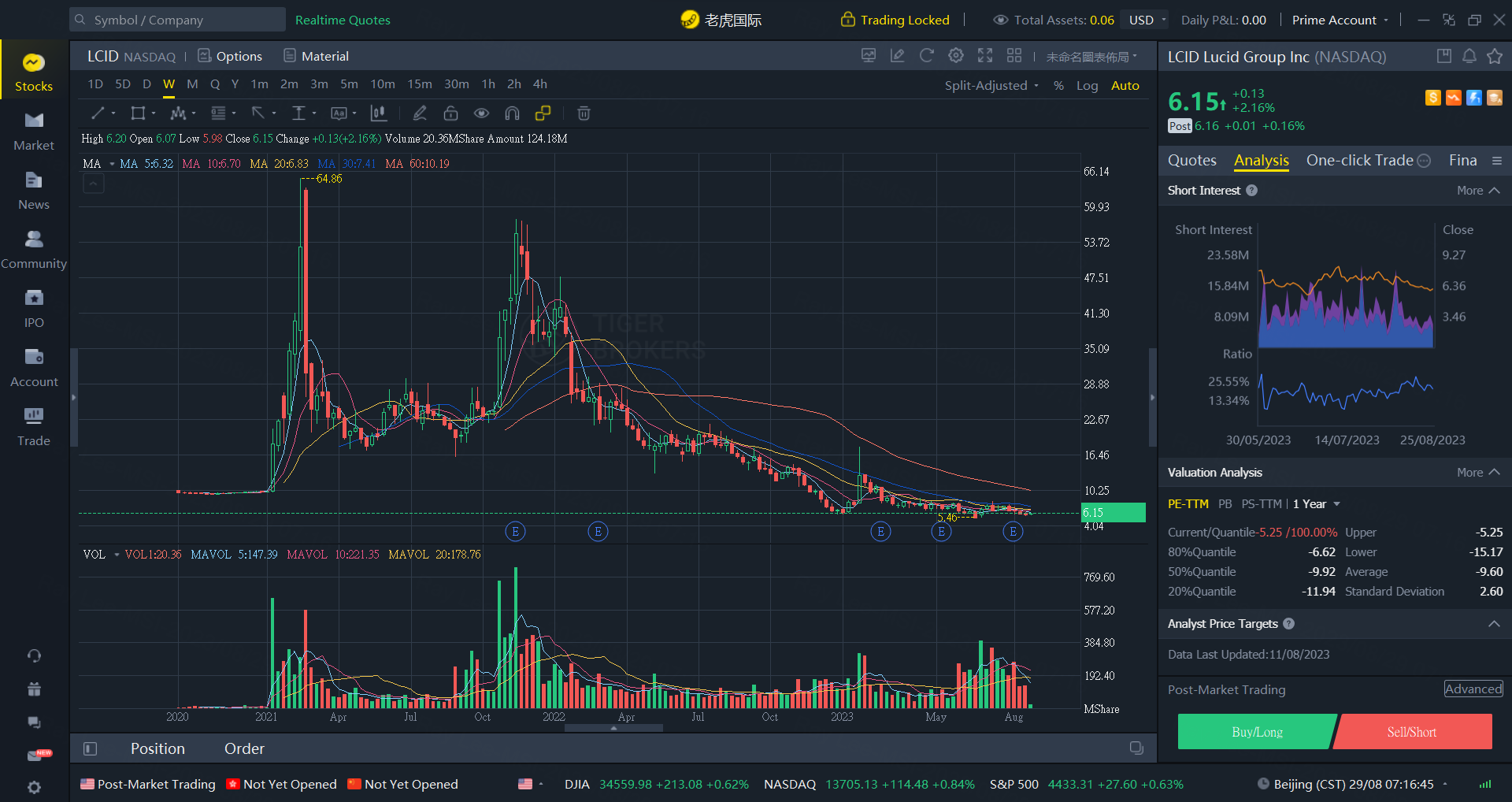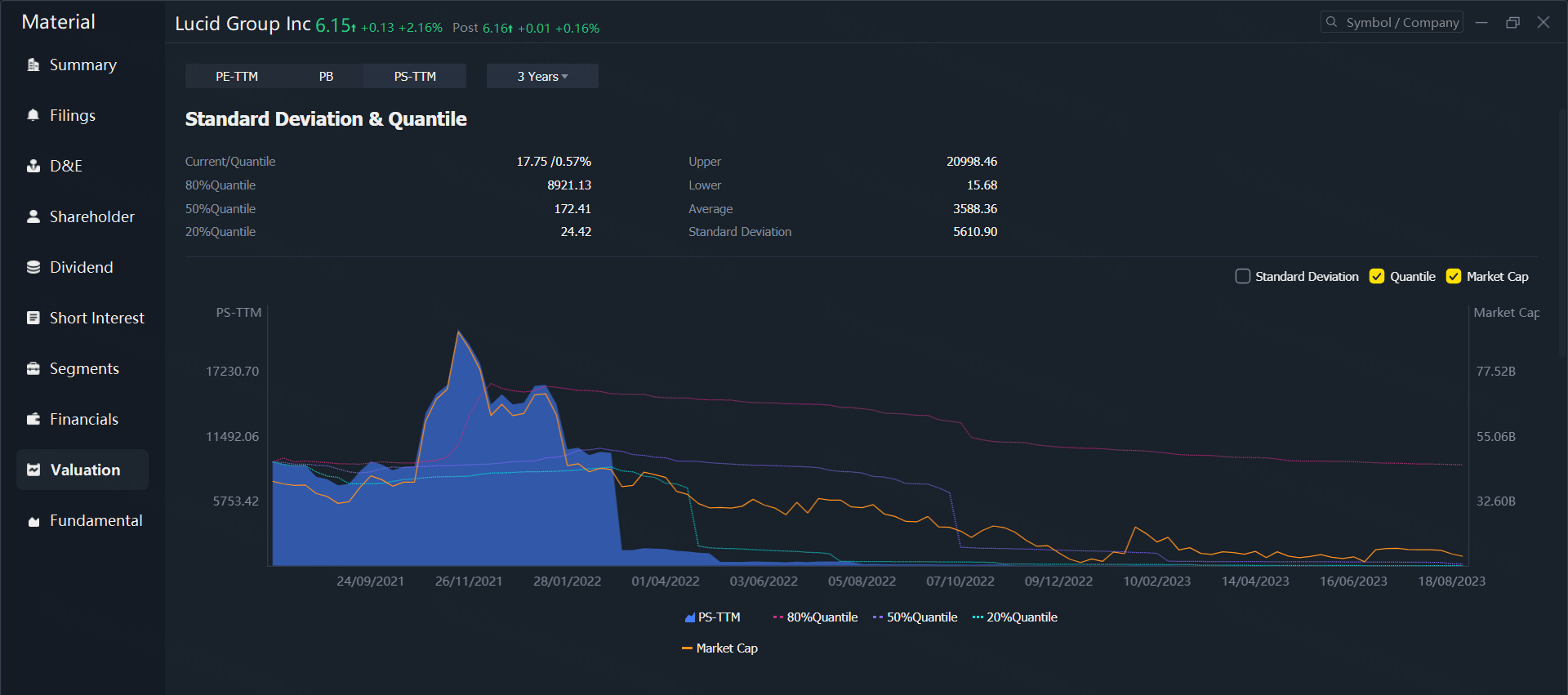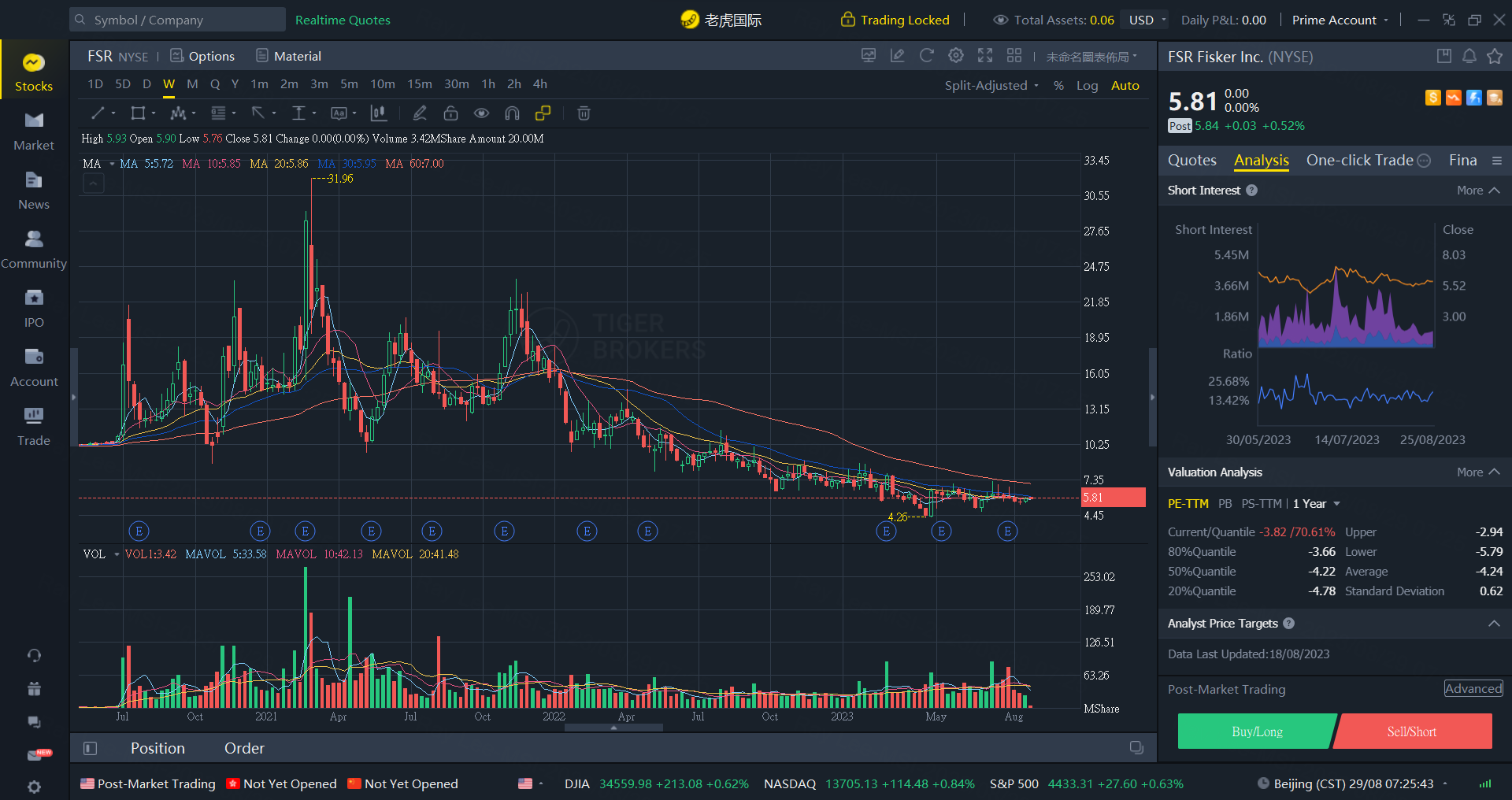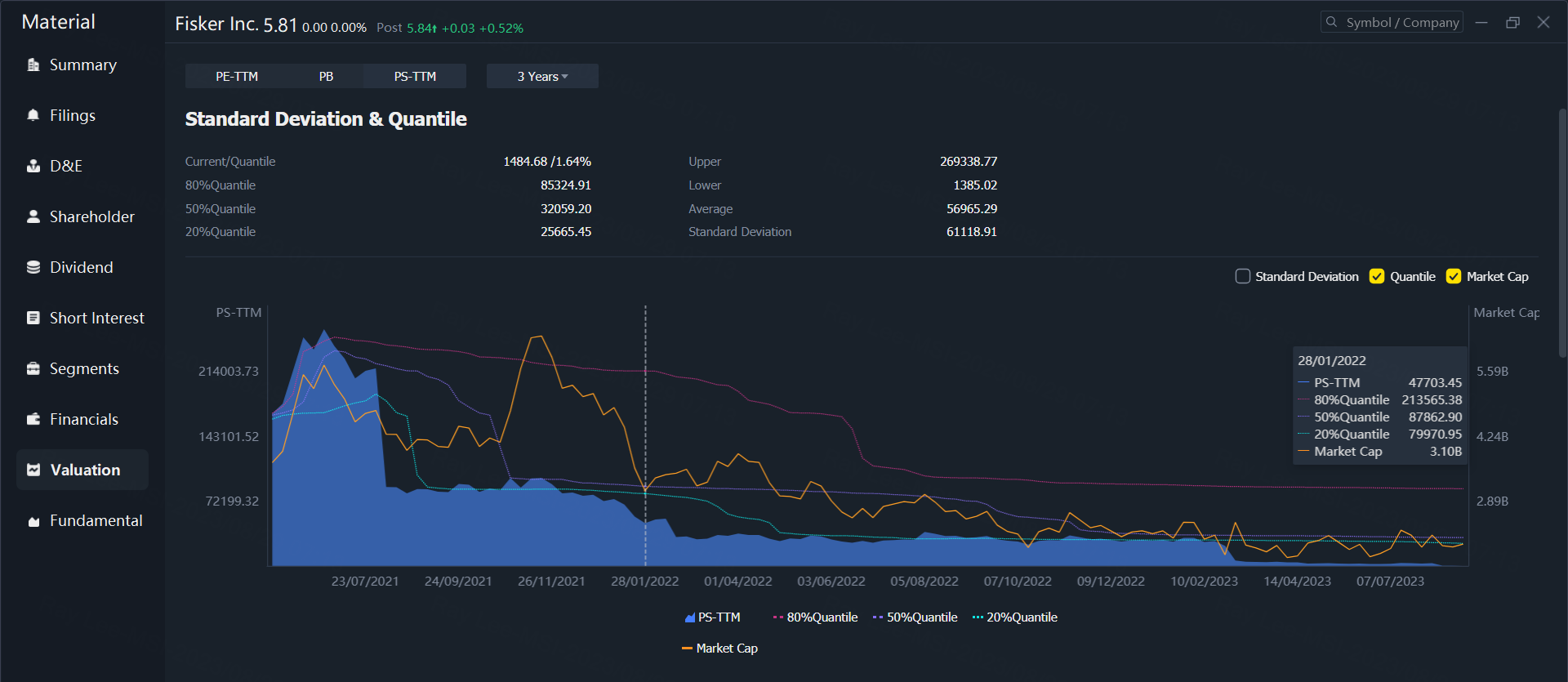San Francisco, a city often known for its technological advancements, is setting yet another trend in the transportation industry. Recently, state officials in California have voted to allow certain driverless cars to operate as taxis in the city, sparking a debate on the future of transportation.
Electric vehicles have rapidly evolved over the past few years, with their applications transitioning from mere imagination to reality. As of August 28, the largest Electric Vehicle ETF, The Global X Autonomous & Electrical Vehicles ETF, also known as DRIV, has experienced an impressive 74.55% increase since last July.
Global X Autonomous & Electric Vehicles ETF (DRIV): Broadly focused with a portfolio that includes tech giants, automakers, semiconductor companies, and other EV suppliers.
A controversial decision
In a 3-to-1 vote by the California Public Utilities Commission, Cruise and Waymo, owned by General Motors and Google parent Alphabet, respectively, received the green light to pick up passengers and charge fares at all hours of the day. Before this decision, these companies had quite limited passenger pickup programs. Now, these self-driving cars can operate fully autonomously, without a human inside until a passenger gets in.
The decision wasn't without its controversy. Protests were staged, with chants against the “robo-taxis,” while Waymo employees countered with bright yellow shirts that proclaimed "Safer Roads For All." Supporters of the technology argued that self-driving cars would be safer and less prone to harassment. On the other hand, many citizens voiced concerns over near misses with bicycles and pedestrians, privacy issues due to onboard cameras, and complications with emergency operations.
Even the San Francisco police and fire departments have raised concerns, tracking 55 incidents over the last six months where autonomous vehicles have hindered emergency operations. From blocking driveways to running over fire hoses, the city's first responders have faced numerous challenges, leading to vocal objections.
Electric vehicle adoption
Amidst the burgeoning trend of autonomous driving, the San Francisco metropolitan region has emerged as a national frontrunner in electric and hybrid vehicle adoption. Capturing an unprecedented 53.1% market share in April 2023, the demand for electrified vehicles in the area is propelled by a demographic that skews younger and more affluent.
Contributing to this uptick in electric vehicle (EV) popularity is the recent decrease in lithium prices, a key component often referred to as "white gold" in electric-car batteries. The affordability of EVs is further enhanced by a year-over-year reduction in new vehicle prices, generous federal tax incentives, and robust sales performance.
On the global front, plug-in electric car sales have sustained remarkable growth, nearly setting a new all-time monthly sales record in June. According to data from EV-Volumes, shared by industry analyst Jose Pontes, 1,260,470 new passenger plug-in electric vehicles were registered globally during that month. This represents a staggering 38% increase from the same period a year ago and accounts for nearly one-fifth of the global vehicle market.
As autonomous driving technology advances, it is categorized into six levels of autonomy by the Society of Automotive Engineers (SAE):
Level 0: No driving automation
Level 1: Driver assistance
Level 2: Partial driving automation
Level 3: Conditional driving automation
Level 4: High driving automation
Level 5: Full driving automation
The autonomous taxis operating in San Francisco are considered Level 4 or Level 5, equipped to handle most or all driving activities continuously.
Challenges and excitement ahead
While the recent developments are exciting, questions remain about how self-driving cars will respond to extreme weather or unique traffic scenarios where human intuition plays a vital role. Alongside the enthusiasm for the potential of autonomous driving, it is essential to recognize and address its limitations.
Investing in the future of transportation
At Tiger Brokers, we empower you with the tools and insights needed for confident investment in this rapidly evolving landscape. We provide competitive brokerage fees specifically designed for U.S. stock investments, along with a balanced approach to investment execution.
For investors interested in capitalizing on the booming electric vehicle market, the following US electric vehicle stocks are worth considering:
General Motors (GM): A significant player in the electric vehicle market.
Tesla: A global leader in electric vehicles and renewable energy products.
Rivian: An emerging player in electric trucks and SUVs.
Lucid Motors: Known for its luxury electric vehicles.
Fisker: A designer and manufacturer of electric vehicles with a commitment to sustainability.
These companies are at the forefront of the growing electric vehicle market and represent exciting opportunities for investment in an industry poised to reshape the future of transportation. All these stocks can be bought on Tiger Trade with brokerage as low as $2 USD. (Pass through fees are charged additionally.)
For full pricing details refer to the pricing page on our website.
At Tiger Brokers, we empower you with the tools and insights needed for confident investment in this rapidly evolving landscape. We provide competitive brokerage fees specifically designed for U.S. stock investments, along with a balanced approach to investment execution. Our robust educational materials and in-depth market insights, including updates on tech giants, help you stay ahead of the curve. Additionally, our decision-making tools and tax management solutions are crafted to simplify your investment journey.
Conclusion
San Francisco's decision to allow autonomous taxi services and its strong embrace of electric vehicles showcase the city's commitment to fostering innovation in transportation, with an impact reverbating globally for the industry. While challenges remain, these developments mark a significant step toward a future where electric vehicles are widely available and transportation is safer, more efficient, and environmentally friendly. As always, we invite your thoughts and comments below.

